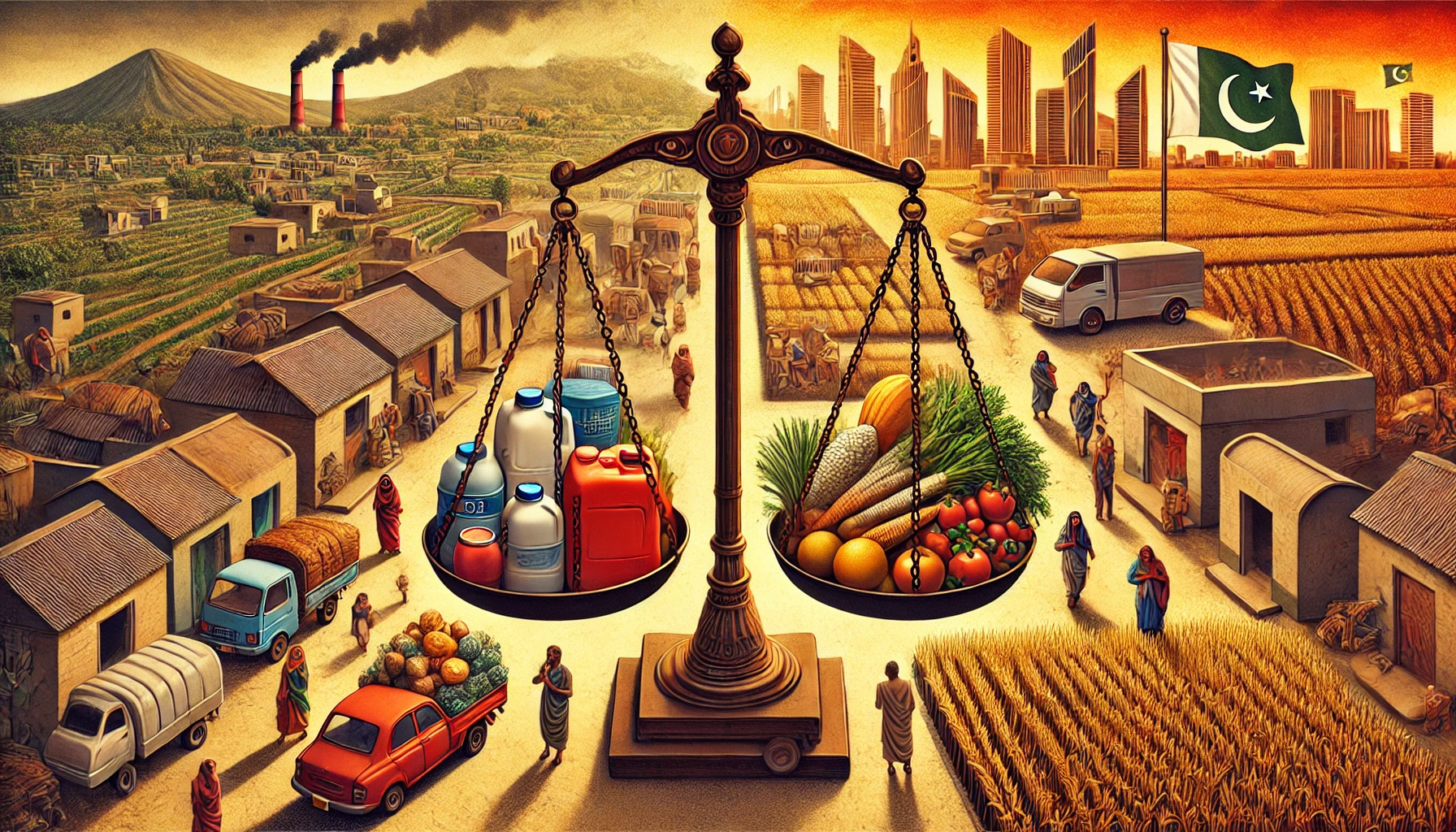Unequal Price Impacts: How Inflation Worsens Socioeconomic Inequities in Pakistan
The World Bank study reveals that inflation disproportionately burdens Pakistan's poor, with food prices driving higher inflation rates for low-income households. It calls for targeted safety nets and data-driven policies to mitigate inflation inequality and promote equitable economic resilience.

The World Bank’s Poverty and Equity Global Practice recently published a working paper, authored by Muhammad Nasir and Shabana Kishwar from the Institute of Business Administration (IBA) Karachi, alongside Moritz Meyer and Oscar Barriga-Cabanillas from the World Bank Group. This study delves into how inflation disproportionately impacts low-income households in Pakistan. By examining inflation trends from November 2018 to May 2022, the researchers reveal how the standard Consumer Price Index (CPI) overlooks critical disparities in inflation's effects across income groups. They find that poor households face consistently higher inflation rates than their wealthier counterparts, with rural families being particularly vulnerable due to their consumption patterns and exposure to food price volatility.
How Inflation Burdens the Poor More Severely
Using data from the Household Integrated Economic Survey (HIES) and CPI records, the study demonstrates how poorer households allocate nearly half of their expenditures to food, compared to only 28 percent for wealthier households. This heavy reliance on food spending means that spikes in food prices disproportionately affect low-income groups. For instance, the study found that between 2018 and 2022, the poorest households experienced inflation rates about one percentage point higher than the wealthiest households, with the gap reaching up to 3.5 percentage points during certain periods, such as July 2020. Rural families, who form the majority of Pakistan’s poorest, face compounded challenges as rural inflation, particularly for food items, tends to outpace urban inflation due to factors like supply chain inefficiencies and perishability.
Food Prices: The Key Driver of Inflation Inequality
The disproportionate impact of food prices emerges as a central theme in the study. For the poorest households, food inflation accounts for nearly 60 percent of their overall inflation, compared to just 40 percent for the wealthiest. This stark disparity highlights how inflation is not experienced uniformly but instead varies significantly across income groups. In contrast, wealthier households feel the brunt of inflation through categories such as housing, utilities, and transport, which constitute a larger portion of their budgets. The pandemic further widened this inequality as declining energy prices provided some relief for higher-income groups, while persistently high food inflation continued to strain low-income households.
Challenges of Generalized Subsidies
The study critiques the regressive nature of blanket subsidies on fuel and utilities, which tend to benefit wealthier households more due to their higher consumption of these resources. While such measures offer temporary relief, they fail to address the root causes of inflation inequality. Pakistan’s shift to targeted cash transfers under the Benazir Income Support Programme (BISP) marked a step toward addressing these disparities. However, the program’s indexing to average inflation rates has proven inadequate, as poorer households experience inflation at rates higher than the national average. Ignoring these disparities risks exacerbating inequalities rather than alleviating them.
A Call for Targeted and Data-Driven Policies
The researchers emphasize the need for more nuanced, targeted interventions to manage inflation’s unequal effects. They advocate for reducing import tariffs on essential food items heavily consumed by low-income groups, which could mitigate the impact of food price shocks. Additionally, central banks are urged to monitor inflation inequality and incorporate these insights into monetary policy frameworks. Current policies, which focus on average inflation rates, often overlook the lived experiences of poorer households. By shifting their focus to include the welfare of low-income groups, policymakers can develop more equitable strategies to manage inflation.
The report also identifies critical gaps in data collection that hinder effective policymaking. While the Pakistan Bureau of Statistics (PBS) collects weekly and monthly price data, these figures represent national and urban-rural trends but fail to capture the granular disparities across income groups. Expanding data collection to include more markets and regions could better reflect inflation trends and guide more targeted interventions. Such measures are crucial for developing a comprehensive and equitable approach to inflation management.
Toward Equity in Economic Policy
The study concludes by highlighting the long-term consequences of unchecked inflation inequality. For low-income households, inflation erodes purchasing power, depletes savings, and forces compromises in food quality and access to essential goods and services. Over time, this deepens existing socio-economic inequalities and undermines human development outcomes. The researchers advocate for sustained efforts to expand and refine targeted safety nets, such as BISP, ensuring they are regularly adjusted to account for the specific inflationary pressures poorer households face. These measures, coupled with progressive fiscal and monetary policies, can mitigate inflation’s unequal effects and foster inclusive economic growth.
The research is a call to action for governments to prioritize equity in their responses to inflationary shocks. It urges policymakers to move beyond generalized solutions and focus on tailored, data-informed strategies that address the unique vulnerabilities of poorer households. By recognizing and addressing inflation inequality, governments can ensure that economic policies promote not just growth but also social justice and resilience against future crises. The study underscores the critical importance of addressing the microeconomic impacts of inflation to create a more equitable and sustainable economic environment for all.
- FIRST PUBLISHED IN:
- Devdiscourse
ALSO READ
World Bank Boosts Pakistan's Economic Stability with $700 Million Initiative
World Bank Secures $700 Million for Pakistan's Economic Stability
World Bank Approves $50m Project to Accelerate Sri Lanka’s Digital Transformation
World Bank Group Approves Innovative Financing to Strengthen Panama’s Economy
World Bank Approves $300m to Improve Gas Subsidy Targeting and Protect Families










